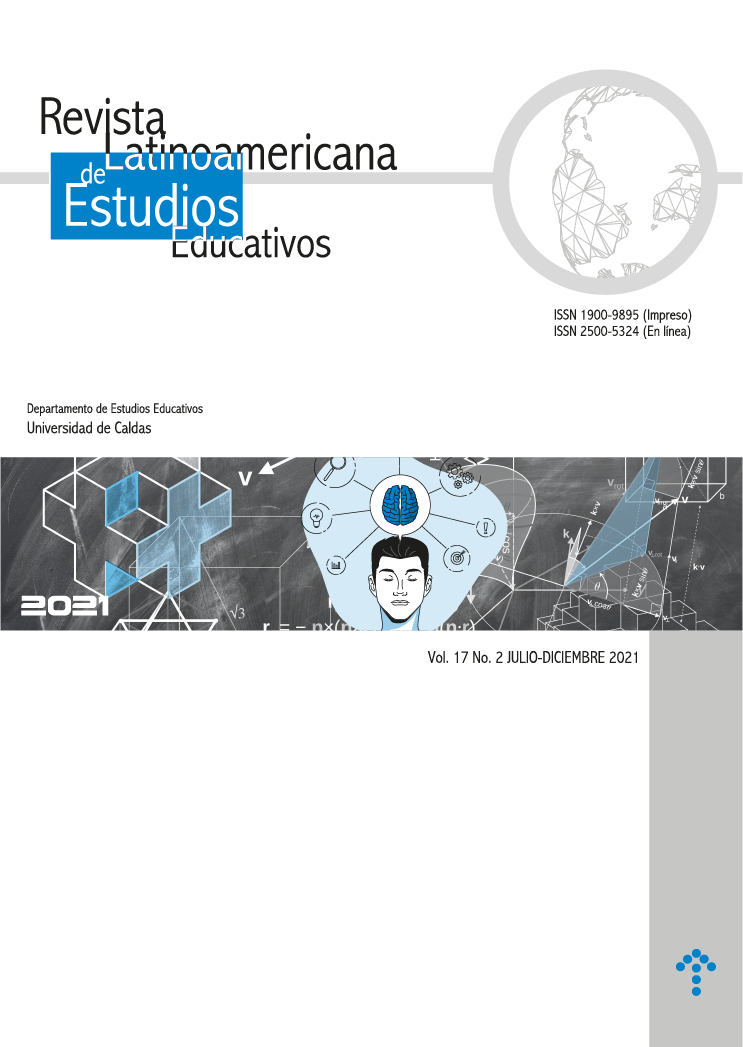Authors
Abstract
Objective: The objective of this article is to define the contributions of Human Development, based on some contemporary theories, for those who lead the Directive Management in Educational Institutions. Method: from a hermeneutical and documentary study, the polysemy of the concept "Human Development" and the interpretative possibilities that are generated from its use in different fields of knowledge are explored. Results: Bearing in mind the transdisciplinary nature of Directive Management and its particularities, essential contributions for its study and for the fulfillment of its mission are found in the reflections on Human Development. Conclusions: For reflections on Human Development to continue being essential for other fields of knowledge such as Directive Management, it is imperative that, without forgetting the human being, the anthropocentric gaze be overcome and progress be made in the study of new forms of relationship that the human being establishes with his environment and that transform him permanently.
References
Bandura, A. & Walters, R. H. (1974). Aprendizaje social y desarrollo de la personalidad. Alianza.
Baltes, P. B, Reese, H. W. & Nesselroade, J. R. (1981). Life-span development and behavior. Academic Press.
Bijou, S. W. & Baer, D. M. (1978). Behavior analysis of child development. Prentice-Hall.
Boisier, S. (2004). Desarrollo endógeno: ¿Para qué? ¿Para quién? (El humanismo en una concepción contemporánea del desarrollo). Universidad Católica de Chile.
Darwin. C. (1859). On the Origin of Species by Means of Natural Selection. Ed. John Murray.
Figuerola, N. (2010). Procesos Claves en la Gestión de Proyectos. http://www.degerencia.com/articulo/procesos-claves-en-la-gestion-de-proyectos
Gagné, R. M. (1968). Learning hierarchies. Educational Psychology. 6, 1-9. 63-84. http://www.sietmanagement.fr/wp-content/uploads/2016/04/Gagne%CC%81.pdf
García Bacca, J. (1997). Antropología Filosófica Contemporánea. (2a reimpresión). Anthropos.
González, L. (2002). Del yo al nosotros. Centro de publicaciones Universidad de Manizales.
Lacasa, P. & García Madruga, J. A. (1990). Concepciones teóricas en psicología evolutiva (I): El psicoanálisis y el conductismo. En J.A. García Madruga y P. Lacasa (Dirs.), Psicología evolutiva (Vol.1) (pp.75-114). UNED.
Mañas Viejo, C. (2016). Delincuencia y responsabilidad moral del menor. Universidad de Alicante.
Marchesi, A; Palacios, J. & Carretero, M. (1983). Psicología evolutiva: Problemas y perspectivas. En A. Marchesi, M. Carretero & J. Palacios (comp.), Psicología evolutiva, I teorías y métodos (pp.265-316). Alianza Editorial.
Max-Neef, M. A. (1993). Desarrollo a escala humana, conceptos aplicaciones y _____ algunas reflexiones. Barcelona. Icaria Editorial S.A.
Mejía Cañas, C. (2011). Las funciones de un gerente de proyectos. Planning Consultores Gerenciales. N°1108. http://www.planning.com.co/bd/gerencia_general/Agosto2011.pdf
Ministerio de Educación Nacional. (2008), Guía 34 para el mejoramiento institucional – de la autoevaluación al plan de mejoramiento. Primera Edición. Cargraphics S.A.
Miranda, J. (2010). El talento humano en la gerencia de proyectos. En El desafío de la gerencia de proyectos (pp. 63-82). MM editores
Morin, E. (2011). Introducción al pensamiento complejo. Gedisa.
Newton, I. (1993[1687]). Principios matemáticos de la Filosofía natural [Philosophiae Naturalis Principia Mathematica]. Ediciones Altaya, S.A.
Nussbaum, M. (2012). Sin fines de lucro. Por qué la democracia necesita de las humanidades. Ed. Katz.
Parodi, C. (2001). El lenguaje de los proyectos: Gerencia social. Diseño, monitoreo y evaluación de proyectos sociales. Universidad del Pacífico.
Piore, M. & Sabel, C. (1984). The second industrial divide: possibilities for prosperity. Basic Books. https://scholarship.law.columbia.edu/books/171
Ramos, J. (2011). Habilidades de un gerente de proyecto exitoso. http://pmconstruccion.bl+ogspot.com/2011/03/técnicas-blandas-carencia-de-los.html
Ricardo, D. (1817). On the Principles of Political Economy and Taxation. Editorial John Murray.
Rostow. W. (1963). The Stages of Economic Growth: A Non-Communist Manifesto. Cambridge University Press.
Sengenberger, W. & Pyke, F. (1991). Small firm industrial districts and local economic regeneration: research and policy issues. Labour and Society, 16(1), 1-25. https://ideas.repec.org/p/ilo/ilowps/992779223402676.html
Smith. A. (1776). An Inquiry into the Nature and causes of the Wealth of Nations. Editorial William Strahan & Thomas Cadell.
Solow, R. M. (1956). A Contribution to the Theory of Economic Growth. Quarterly Journal of Economics, 70, 65-94. http://www.jstor.org/stable/1884513?origin=JSTOR-pdf
Skinner. B. (1938). The Behavior of Organisms: An Experimental Analysis. Cambridge, Massachusetts. ProQuest.
Wilber, K. (2007). Espiritualidad integral. El nuevo papel de la religión en el mundo actual. Ed. Kairós.

 PDF (Español)
PDF (Español)
 FLIP
FLIP
























